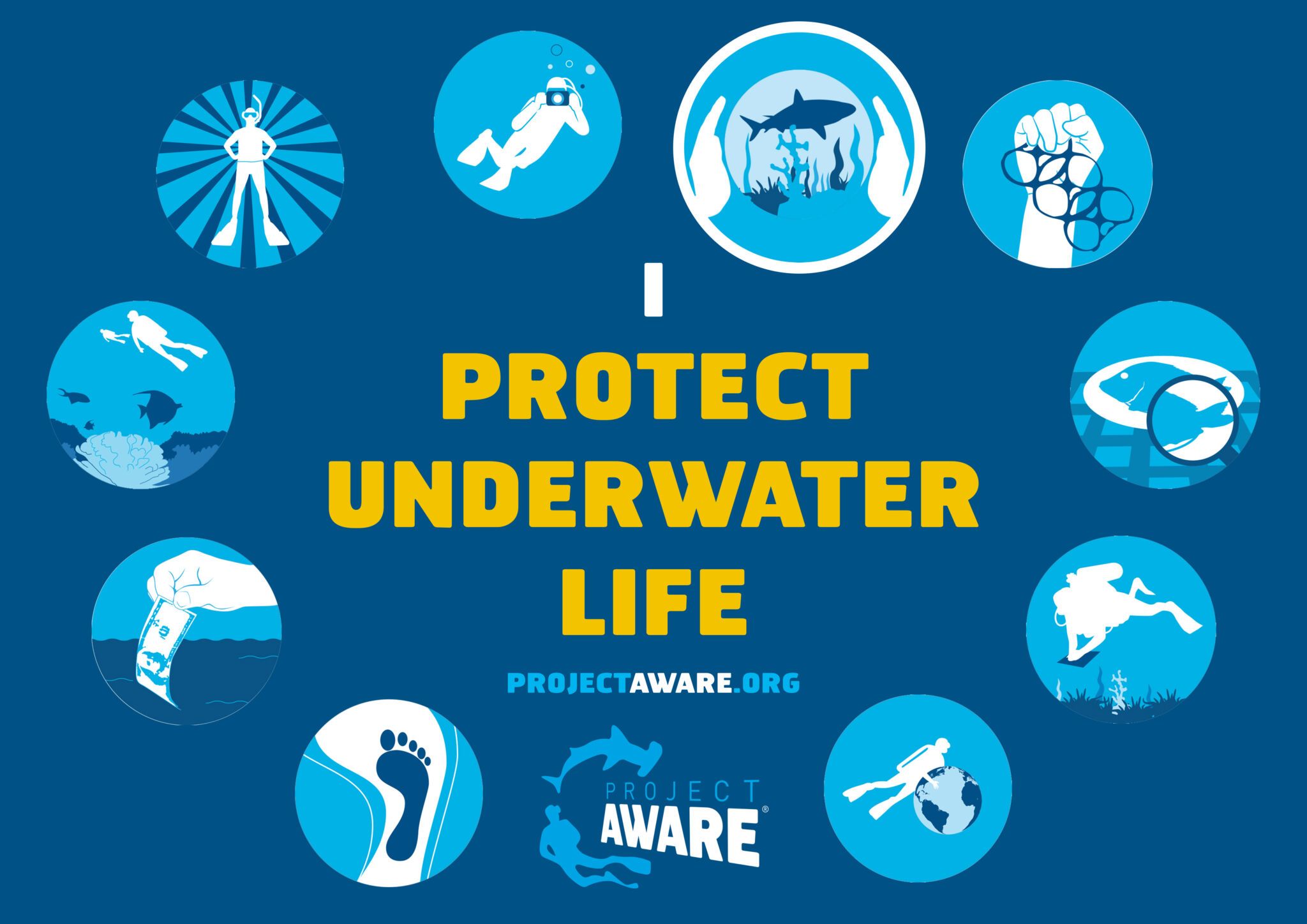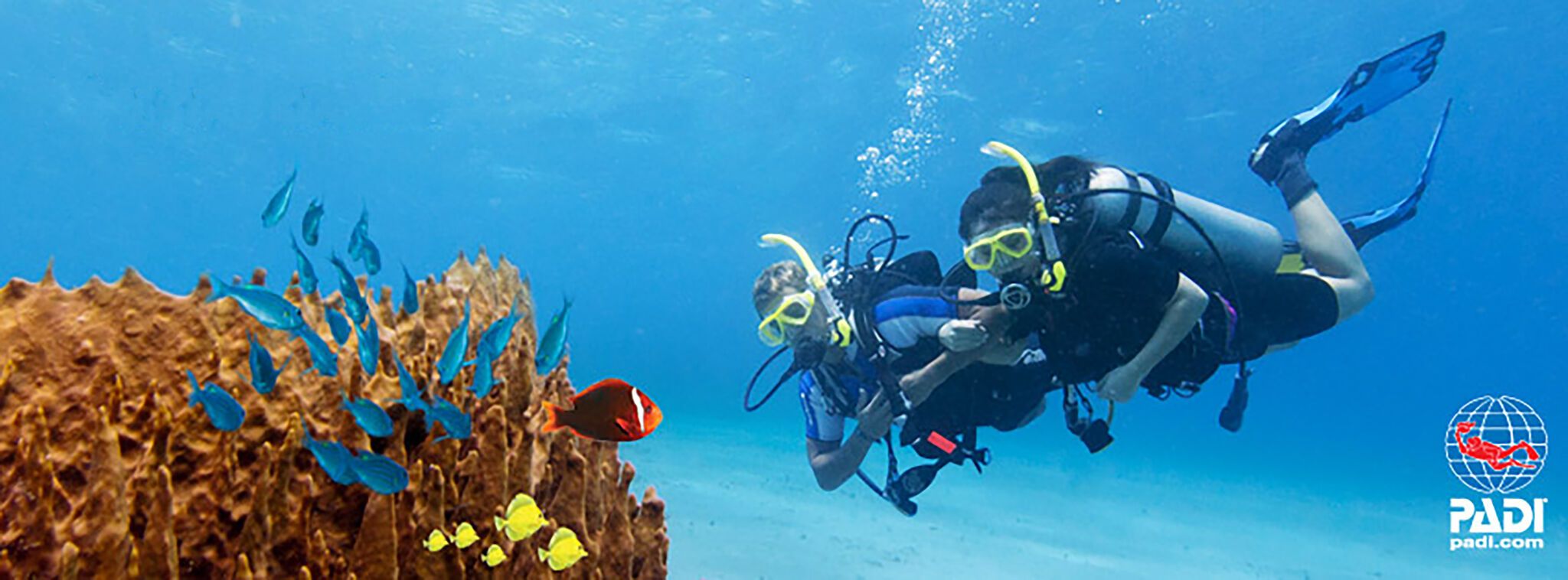If diving is on your bucket list, here are a few tips for your first dive.
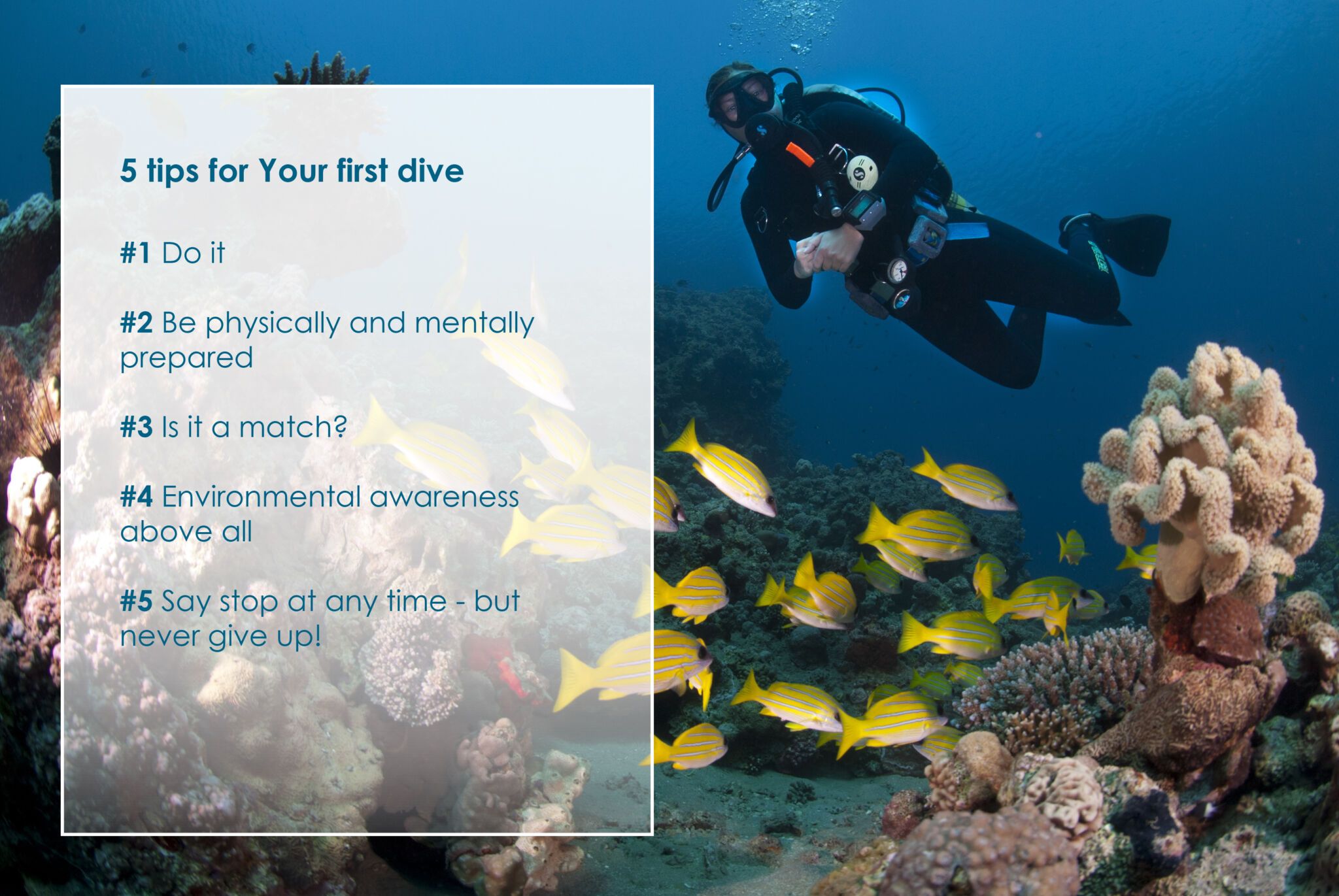
I tried to learn how to dive in Thailand in 2003, but it wasn’t my time untill I came to Egypt in 2007 and tried diving in Naama Bay.
Tip #1 - Do it
If breathing underwater is something, you want to try, then I sincerely hope, you get the chance at some point. For me, it has been life changing on many levels. Maybe not the first experience, I had, but that first dive started a journey, that has lasted several of years and formed who I am as a person today. Diving has became my number one priority and over the years Ocean Health has become all-consuming and gives everything I do meaning. My point is, if diving is on your mind, even the slightest bit, I really hope you act on it at some point – and remember it is never too late.
Tip #2 - Be physically and mentally prepared
Having said, it is never too late – physical health is a prerequisite for diving activity. If you are taking the plunge late in life, I advise you to consult with your doctor to make sure to meet the requirements. Before anyone engages in a guided diving activity, you will have to fill in a medical statement. Depending on the location, you might not need to have a doctor’s approval, but it is a good thing to have checked out in advance, so that you don’t all a sudden have to postpone the whole programme, because this wasn’t prepared.
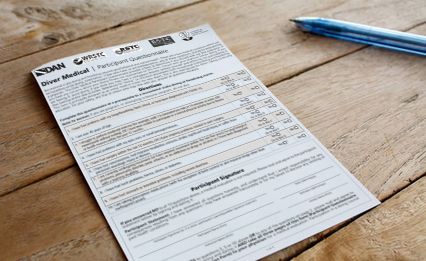
Mental fitness is also a big factor in my opinion. You know yourself when you are at your best. Make sure, you have had a good sleep and drink plenty of water, because breathing compressed air, dehydrates your body. If your mind is occupied with worries and stress, maybe it is not the best time to try diving. But know, that once diving has become second nature, an easy dive can also be what solves all the worries in your everyday life. But don’t expect this from your first dive. On your first dive, you will experience so many new sensations, that will require some process afterwards, but it will hopefully also get you hooked.
Tip #3 - Is it a match?
Chose your first dive with awareness. Ask questions and don’t be lured. Trust your instincts. The salesperson can’t know your comfort level. You need to align with each other. You might be on a holiday and see that diving is offered, but that doesn’t mean, that this is where you need to do it.
Maybe your first dive is better done in the comfort of a pool. Actually, referring to the dive spot as a pool, is not a bad idea at all. Introductory dives should be conducted in pool like conditions to eliminate any factors, that will compromise safety and environmental damage. Not all locations in the World can offer this but might still offer beginning dives. So again, you be the wise judge.
Jonas and Nikolaj doing their first dives in an indoor pool. Later they continued their education in the green waters of Denmark. Their first dives outside of Denmark were made in Uruguay. ⇓
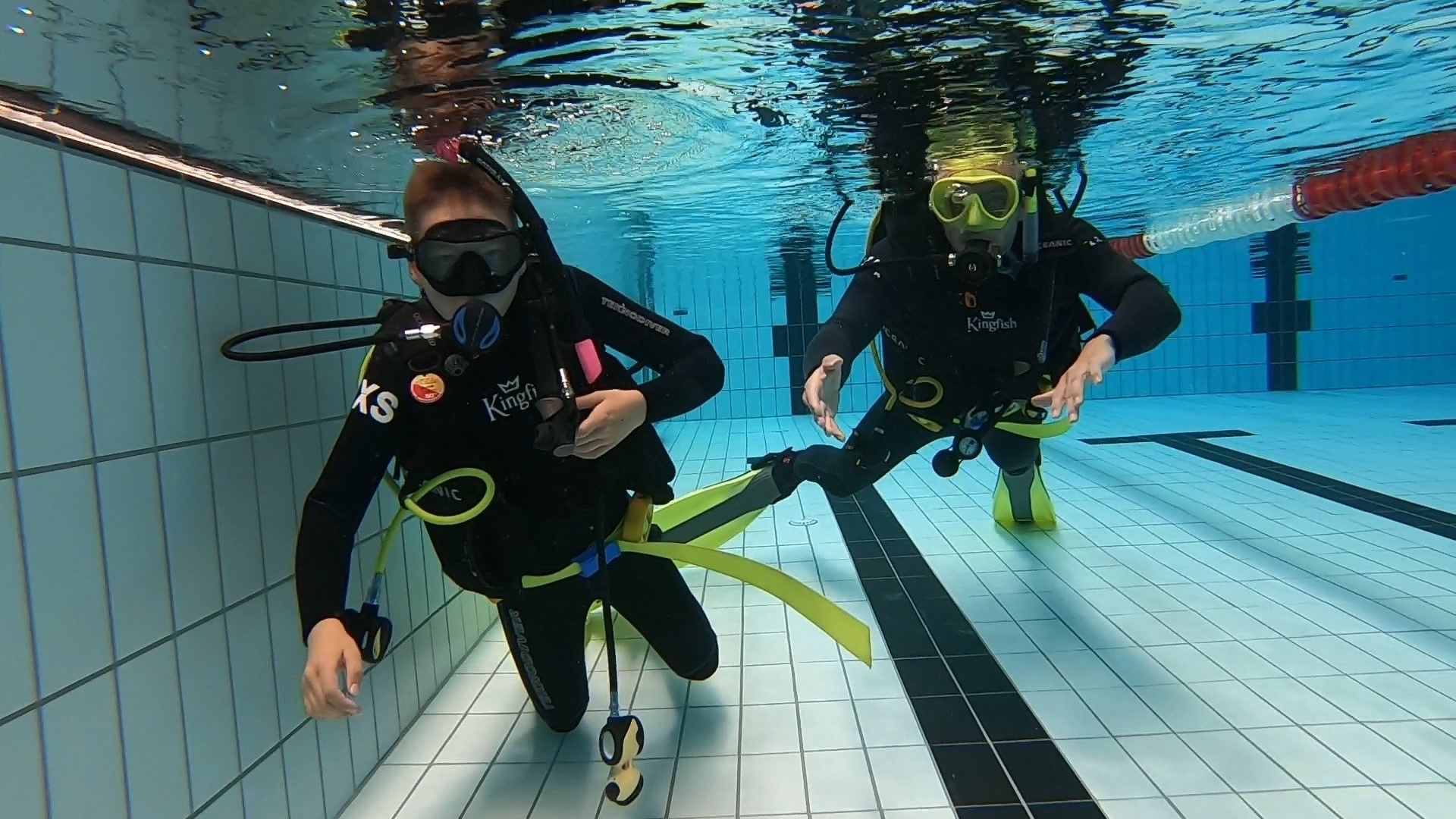
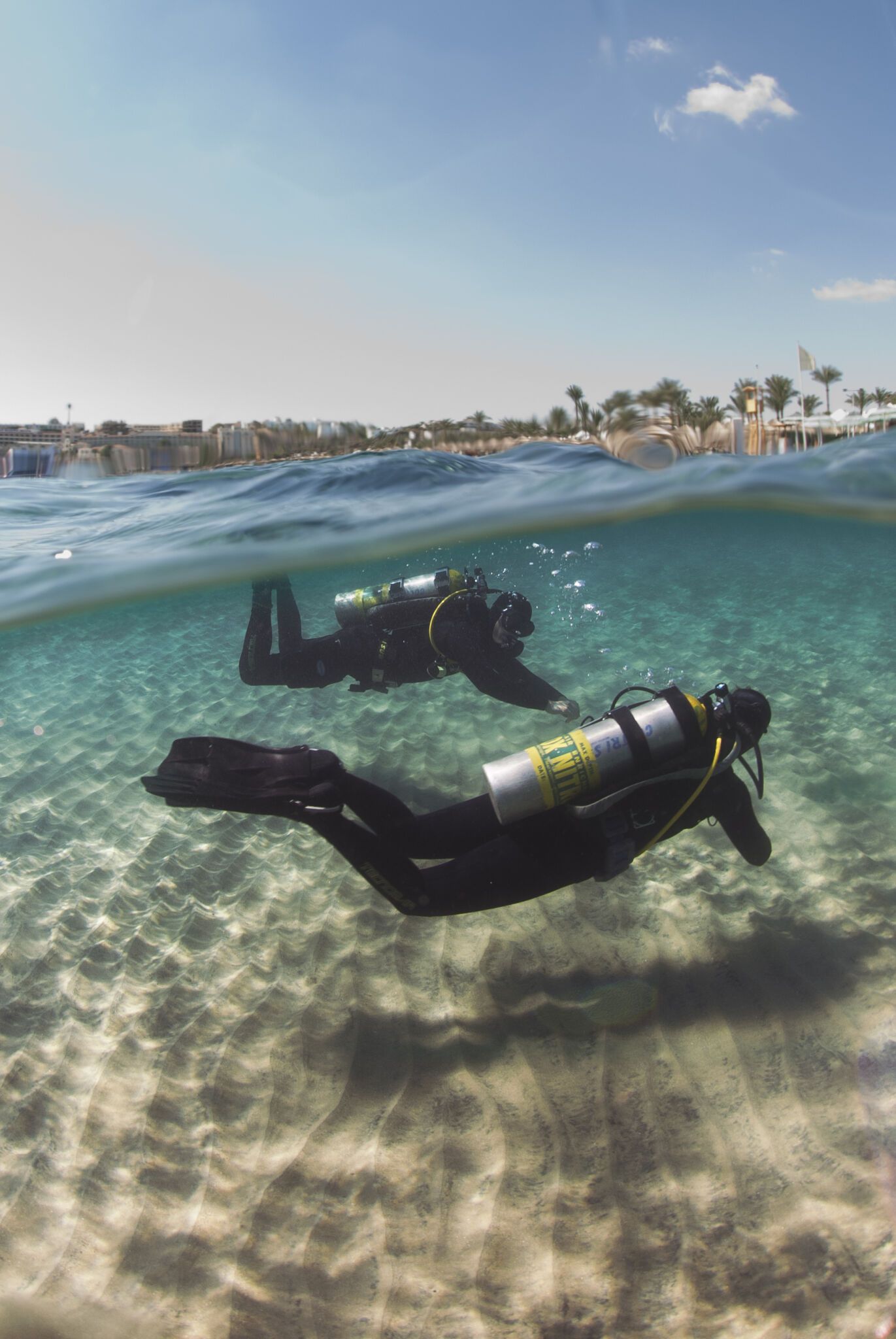
⇑ Some dive centers conduct all training in the ocean. Shallow beaches without boat traffic, no currents and a calm surface can be great places to learn to dive.
Here I am diving with Bram in Naama Bay, where I myself learned to dive.
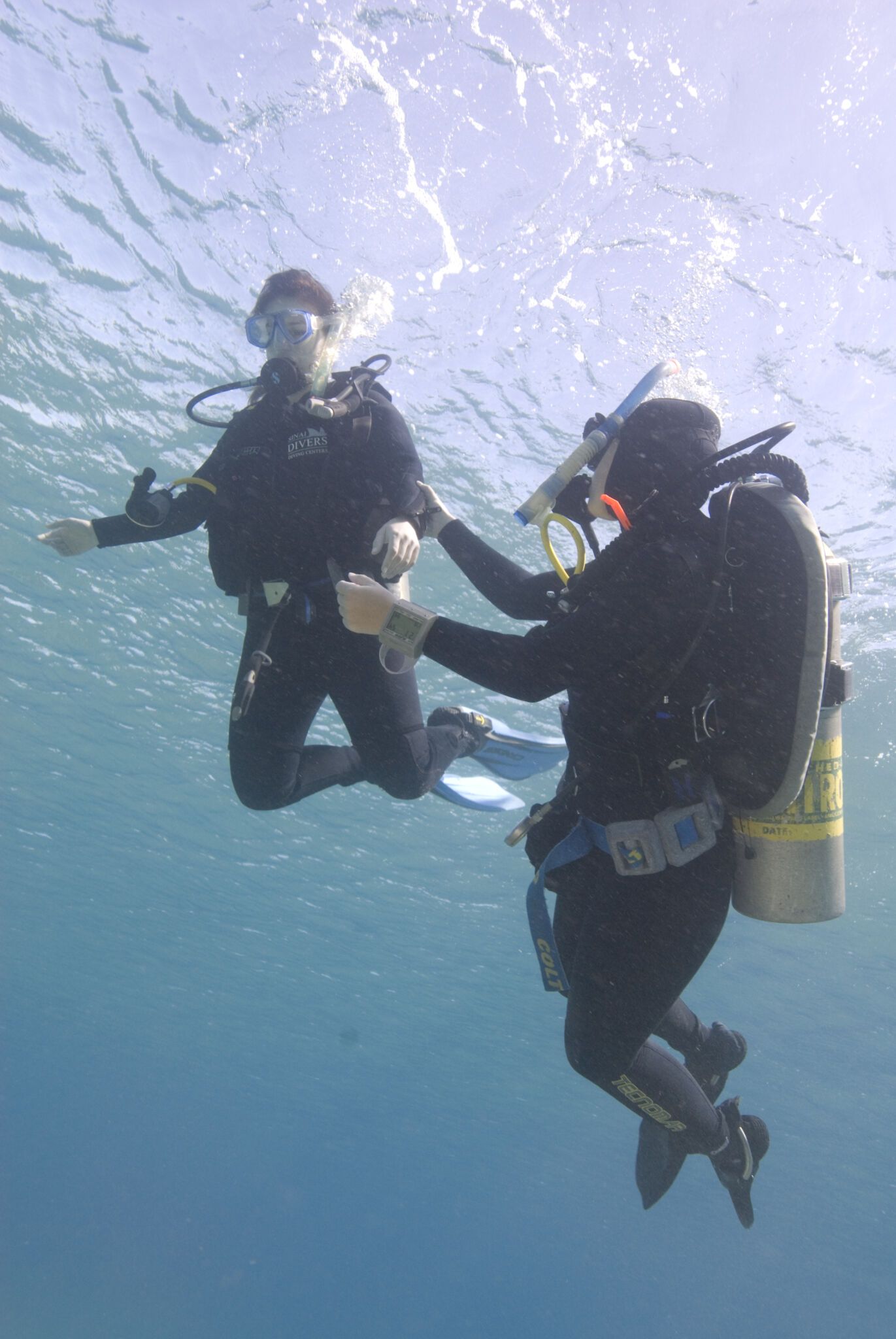
⇑ You need to feel comfortable with your instructor and trust that they have an eye on you at all times. Sometimes it makes sense to ask for a private session and there is nothing wrong with that, though a group of students can make the course extra fun. Lesley did her course alone with me, but after I certified her, she tried diving with other instructors to get some perspective.
Tip #4 - Environmental awareness above all
For most people, the motivation to go diving comes from seeing the underwater life, but I would actually like to advocate, that this doesn’t need to be part of your initial experience. I see it as a bonus if you get to witness the underwater life. But conducting introduction dives in fragile environments with animals that are not necessarily that happy with our visit, makes very little sense to me. And of course, you also have to consider, that if your movements underwater are not controlled, you might end up damaging the very environment, you would love to see. This is why, I believe the focus should be on the wonder of breathing and floating underwater. A serious dive center to me is one, that makes it apparent, that their local dive site – their playground – must be protected at all costs
Project Aware is one of the bigger associations, that dive centers can affiliate themselves with when it comes to ocean protection.
Tip #5 - Say stop at any time - but never give up!
Introductory diving sessions come in many forms. I myself am a Padi Instructor. But there are other organisations too and I will not advocate one above the other, because as mentioned in tip #3, it needs to be a match for you and that can vary. In my own career, I have experienced a certain amount of time pressure on beginning programmes. This is of course because diving is a business, and the price relates to the time the student diver spends with the instructor. And even though the ultimate goal might seem to be the dive, don’t be sad to find, that time has run out or that you need to say stop at some point. Maybe it just wasn’t the day, but there can come another day.
From an instructor’s point of view, I can tell you, that all I want is to share this amazing experience with you, but my job is only done, if the student is truly ready. And that might come over several tries. It doesn’t mean, that the first effort was a failure. I believe that any experience in the diving world sows a seed in your mind. And this seed might need some time, before it is ready for another drip of water. With this I am also saying, don’t give up. If you can feel in your heart, that you need to dive, give it another try at some point or explore some of the uncertainties, that kept you from completing the first time. If your comfort level in the water wasn’t good enough – start swimming on a regular basis. If you think it was weird to breathe through a mouth piece, do some snorkelling. Even in your local ice-cold lake with suit and snorkel. If you didn’t feel comfortable with the instructor or the operation, talk this over with someone and find your match. The ocean is calling, so open your heart to it.
The short video is from Ulla’s first dive in the ocean in Denmark. The water was calm and a lot of time was spent on the surface getting comfortable. I look forward to this Summer when Ulla will continue her education.
